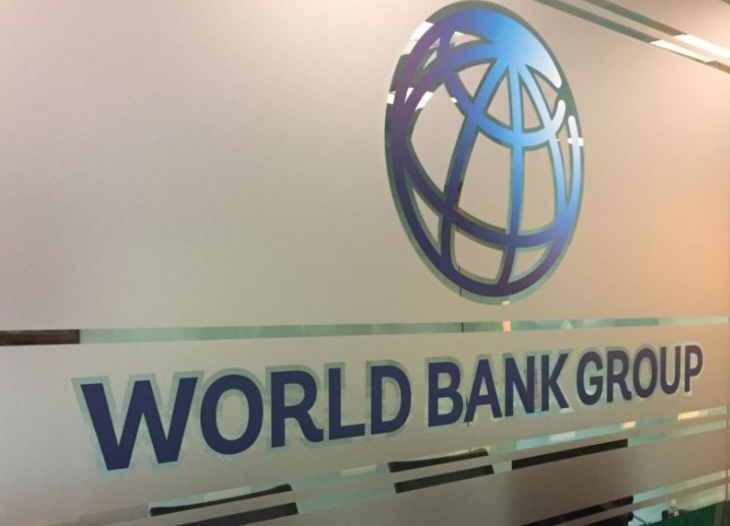The World Bank says Nigeria made an early exit out of recession than projected in its October 2020 forecast for Sub-Saharan Africa (SSA).
In its latest Africa Pulse Report for April 2021 titled, ‘COVID-19 and the Future of Work in Africa: Emerging Trends in Digital Technology Adoption’, the bank said Nigeria’s oil sector weakened in the fourth quarter of 2020 despite an increase in oil prices.
TheCable reported in November 2020 that Nigeria had slid into its worst economic recession in over three decades (33 years) with a contraction of 3.62 percent.
In February 2021, the National Bureau of Statistics (NBS) announced that Nigeria exited its second recession in five years by a slight increase of 0.11 percent.
Advertisement
The World Bank, in the report, said real gross domestic product (GDP) in west and central Africa contracted by an estimate of 1.1 percent in 2020 partly owing to a less severe contraction than expected in Nigeria during the second half of 2020.
“Following a 6.1 percent year-on-year contraction in 2020Q2, Nigeria’s economy contracted by 3.6 percent in 2020 Q3, and expanded by 0.1 percent in 2020 Q4, moving out of recession faster than expected,” the report read.
“For the year, Nigeria’s real GDP is estimated to have contracted by 1.8 percent, a stronger outturn than projected in the October 2020 forecast.”
Advertisement
According to the report, Nigeria is expected to return to growth in 2021, partly owing to higher commodity prices, however, the recovery will remain sluggish.
“After a 1.1 percent contraction in 2020, real GDP in West and Central Africa is projected to grow 2.1 percent in 2021 and 3.0 percent in 2022.
“The 2021 growth forecast is 0.7 percentage point higher than was projected in the October 2020 Africa’s Pulse, partly reflecting the positive effects of the global recovery.
“Nigeria’s muted growth prospects and slow vaccine rollout will weigh on the sub-regional (West Africa) outlook.
Advertisement
“Despite higher oil prices, Nigeria and other oil exporters are expected to face a slower recovery compared with the rest of the sub-region, where activity is projected to strengthen.”
World Bank further projects that Nigeria’s real GDP will rebound from a 1.8 percent contraction in 2020 to moderate growth of 1.4 percent in 2021.
It said this will be driven by telecommunications services, trade due to gradual opening of borders, agriculture, and construction.
“However, consumer spending and business investment are likely to remain subdued in 2021 as double-digit inflation, high unemployment, and the slow rollout of the COVID-19 vaccine weigh on households’ real income and business confidence.
Advertisement
“Limited fiscal space will also constrain the recovery. Growth is projected to pick up to 2.1 percent in 2022 as rising oil output bolsters exports, and the rollout of the COVID-19 vaccine gathers pace, helping to boost private consumption and fixed investment.
“Progress on the liberalization of the exchange rate regime could boost private sector activity and support stronger economic growth.”
Advertisement
1 comments







It will be nice to get comment from the opposition party on the world bank report.